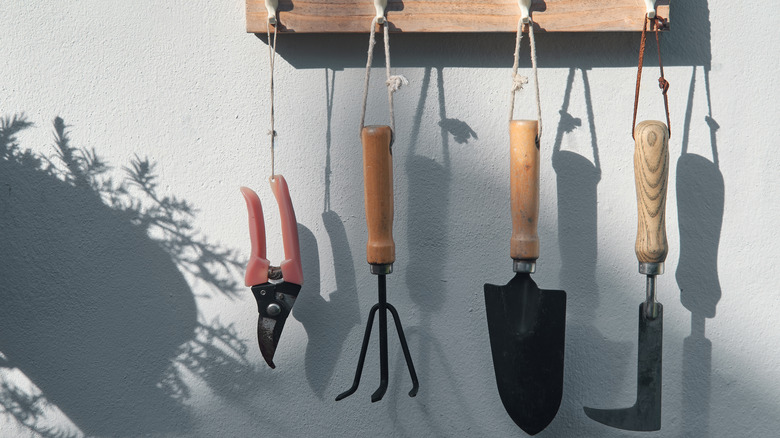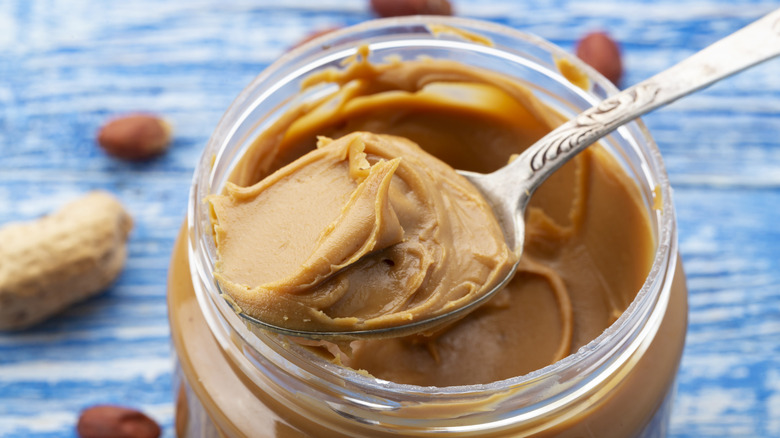The Old Farmer's Almanac Shares A Hack For Preserving Garden Tools In Winter Weather
You might be focused on winterizing plants in the garden this fall, but did you know now's the time to prep garden tools for colder months, too? The Old Farmer's Almanac offers an interesting trick to try on spades, hoes, and shears: Apply a coat of peanut butter. It might protect garden tools from rust when you tuck them into the shed this fall.
Peanut butter's not just for removing gum from your kids' hair anymore. It can actually be quite handy in the yard, too. Some say the popular spread can do everything from getting sticky garden scissors unstuck to even lubricating lawn mower blades. While there's no scientific research to back this hack to preserve garden tools, the Old Farmer's Almanac, a 234-year-old publication, suggests it in a list of peanut butter gardening hacks. Just pick smooth, not chunky. Nutty versions make it harder to apply a thin layer and will just make a mess.
Apply a relatively thin layer, because you don't want to add too much gunky residue. Spread it on with a towel or rag and evenly cover all metal surfaces. You can also use other kinds of oil to shield tools from corrosion as well as wear and tear. Look to restore old garden tools with the help of WD-40. Linseed oil or vegetable oil from the kitchen also works. Employ these oils if you prefer to keep your peanut butter in your PBJs. After applying the oil of your choice, it's time to think about other ways to protect your tools this winter.
Peanut butter isn't the only thing to use on tools this winter
Before you put tools away for the season, you should clean, polish, or sharpen them. This will help your tools last longer, and it'll save you time next spring when you'll be eager to get to work in the garden. For the right way to easily clean gardening shears and other tools, pick a rust-removing cleaning block or just grab a wool or wire brush you typically use to clean your barbecue pit. Scrub off any sap or dirt residue.
When cleaning, think about sanitizing tools, too. Dirty tools can spread disease through the garden, like fungal infections or bacteria. Use a bit of rubbing alcohol to kill the germs. After cleaning and sanitizing, evaluate the sharpness of your cutting tools. Dull blades damage plants by tearing stems rather than cutting them cleanly. So if the blades feel dull or don't cut well, now's the time to sharpen them. Grab a file and get to work.
Once tools are sharp and clean, store them somewhere dry and protected, where humidity is low. You might even take that empty, clean peanut butter jar and keep smaller tools or garden gloves in it. Keeping gardening gloves in a jar when they're not in use helps keep them dry and bug-free, making sure they stay in the best condition for spring.

